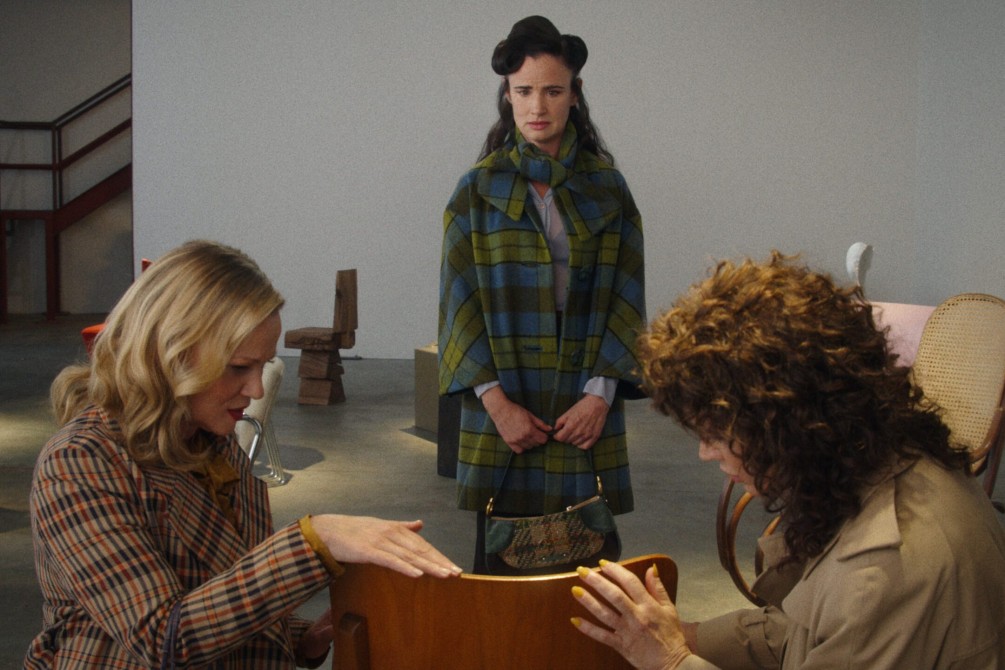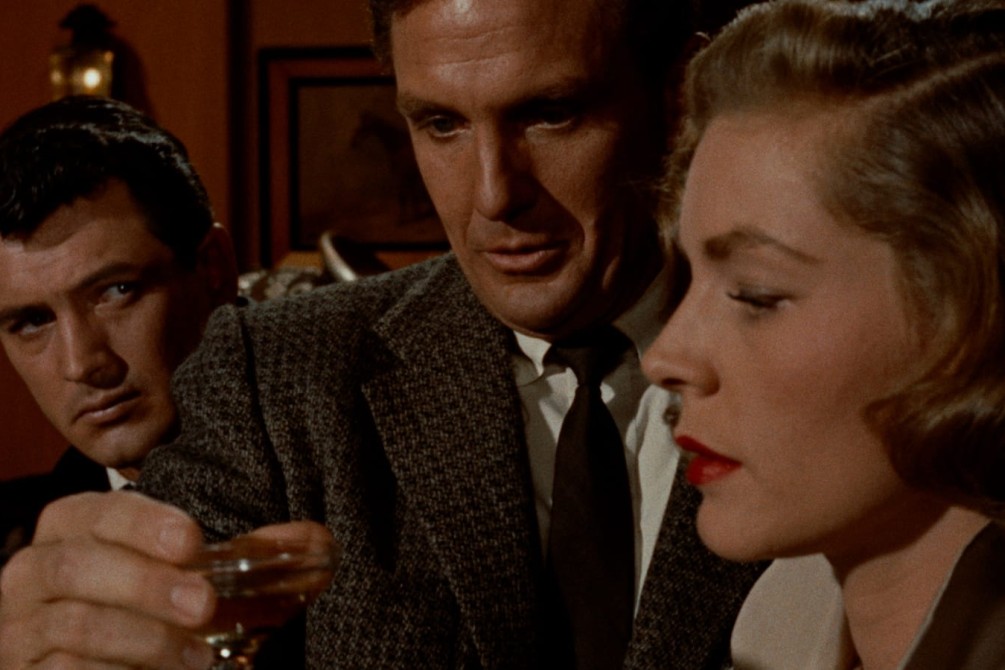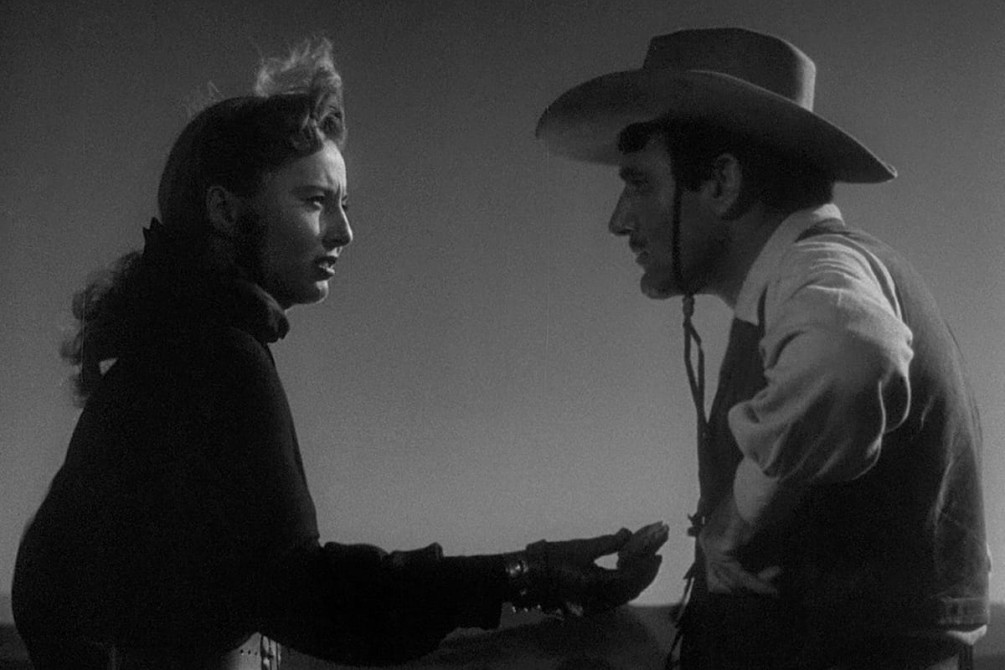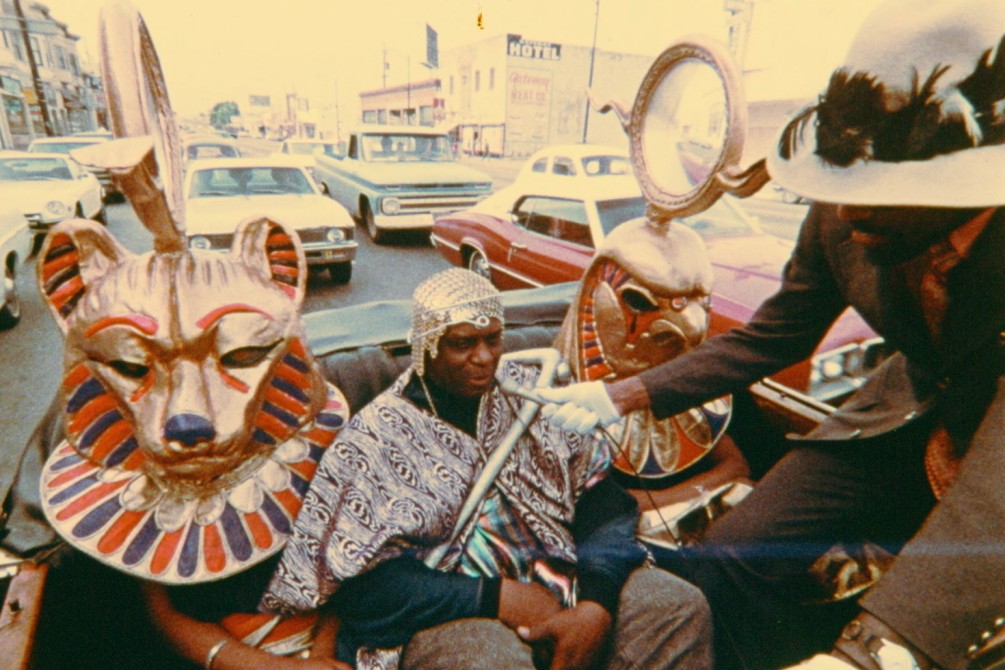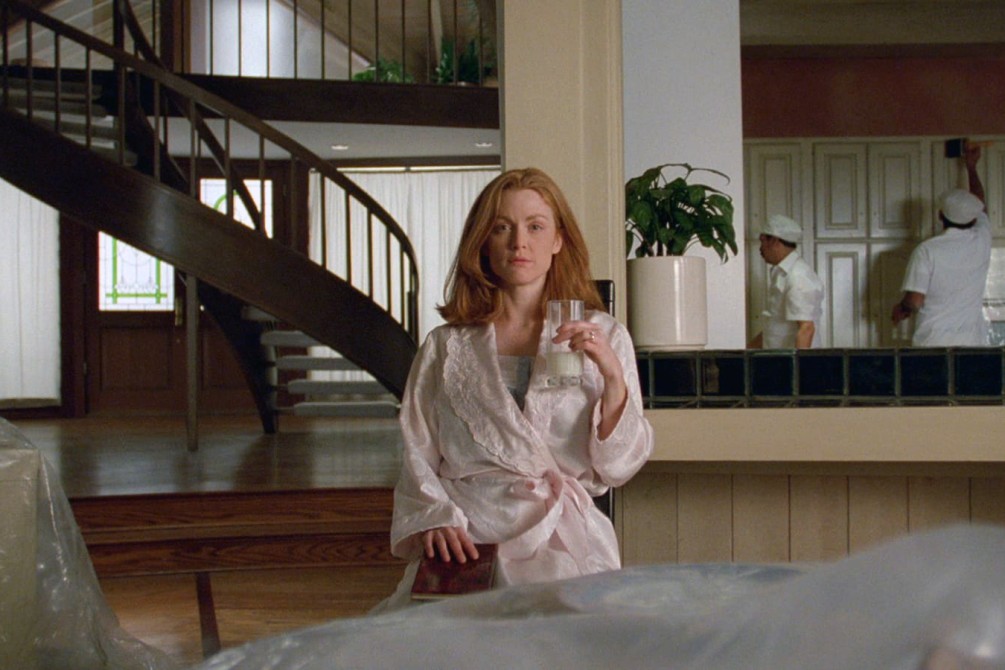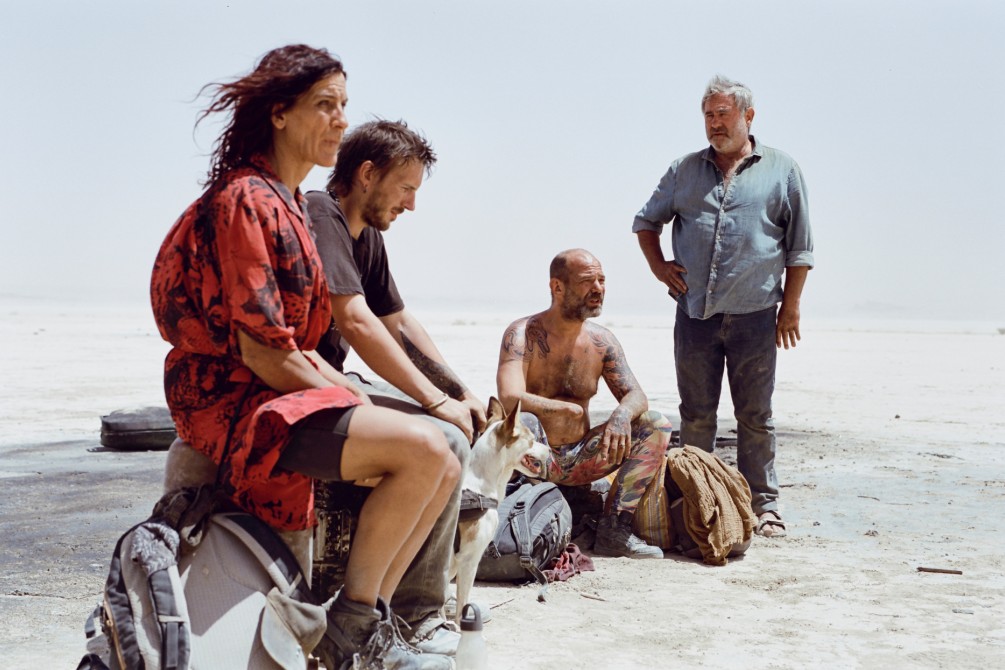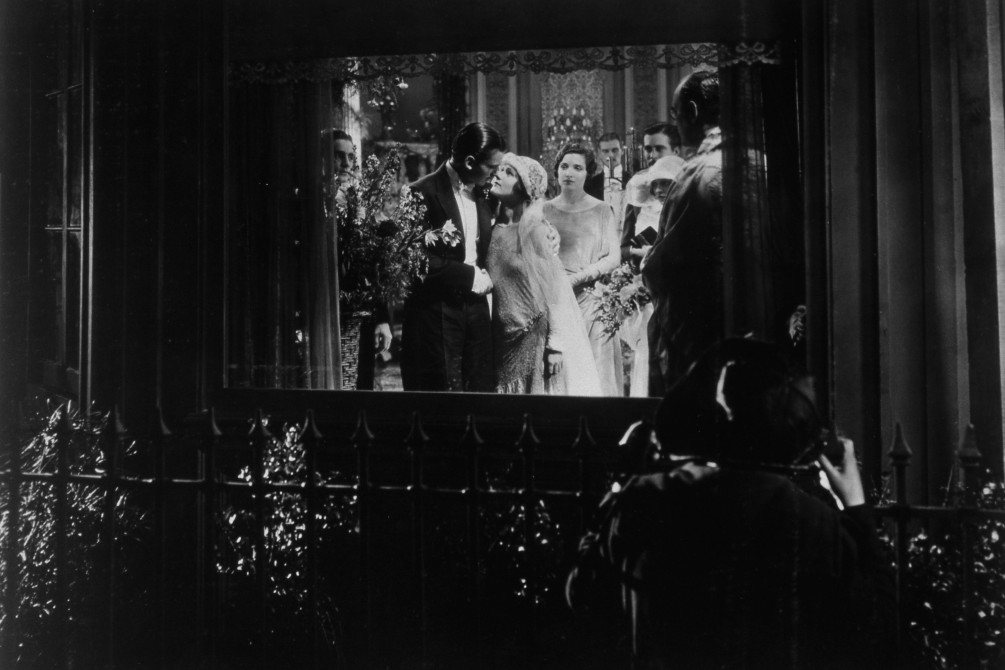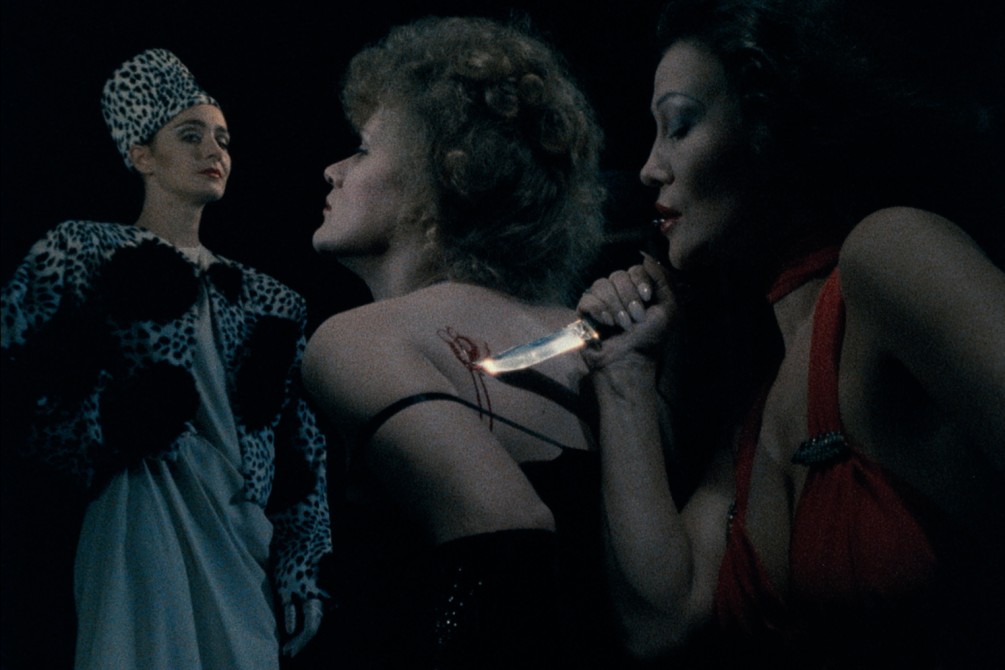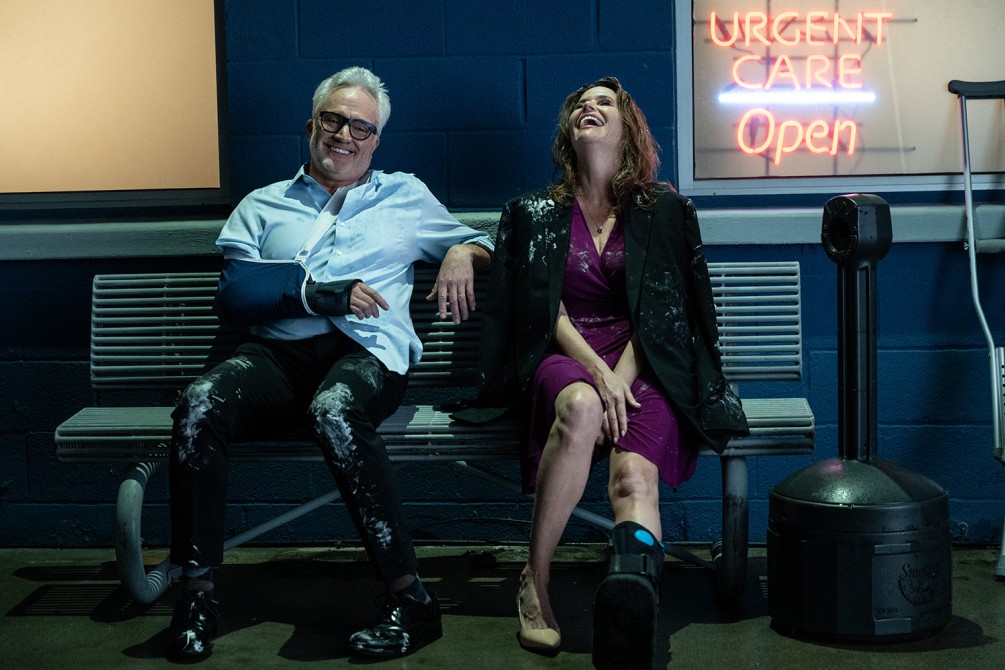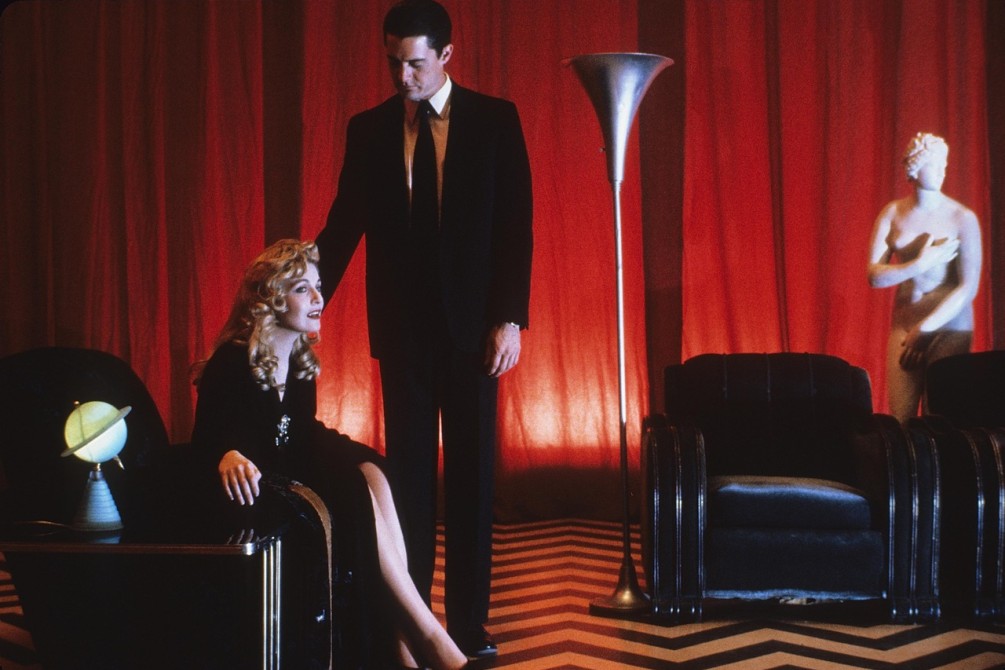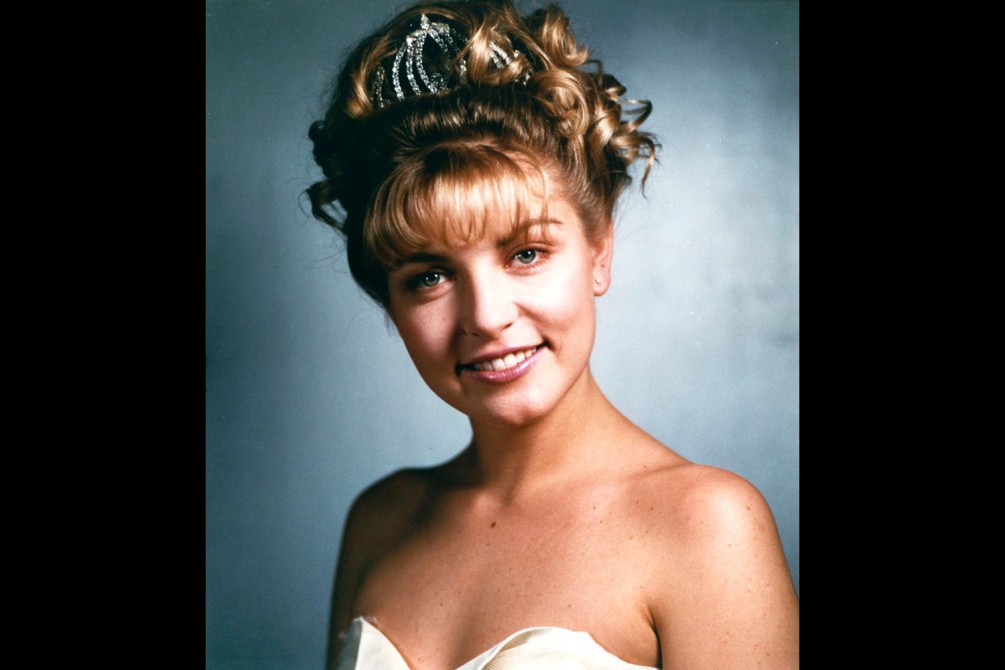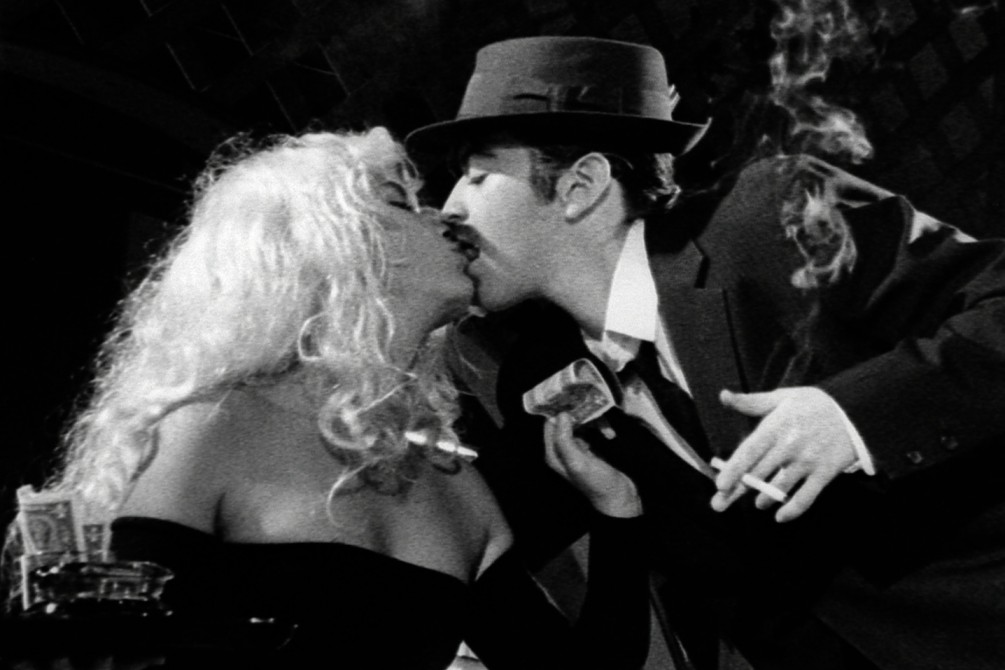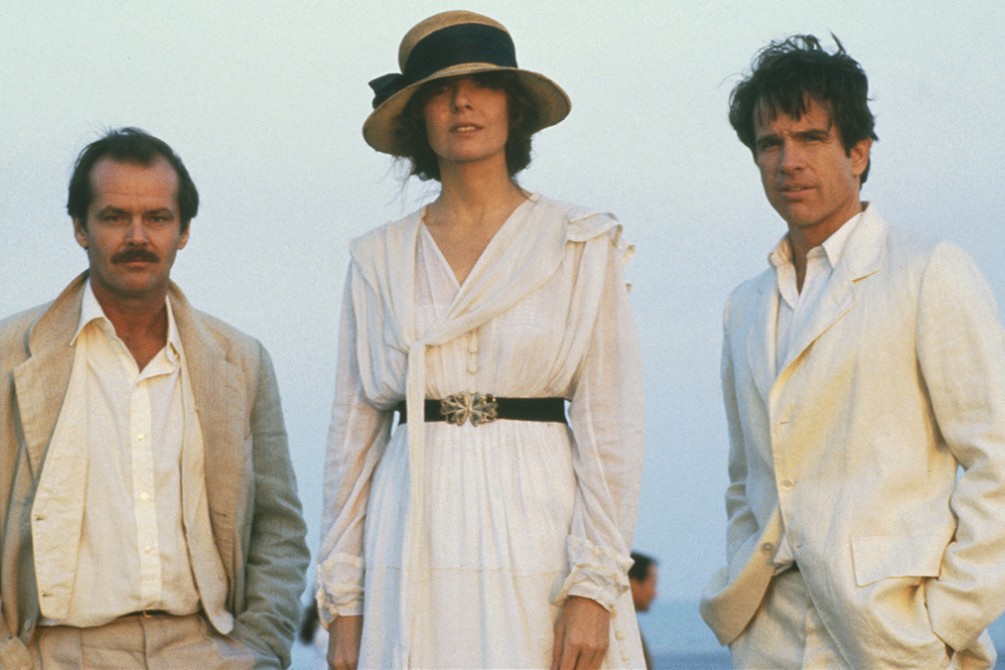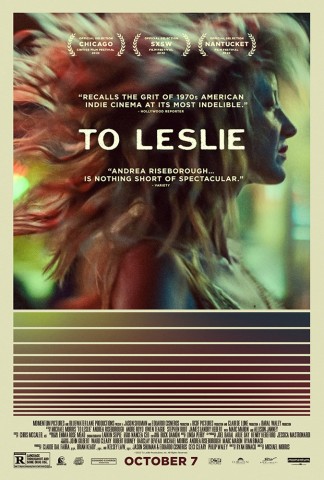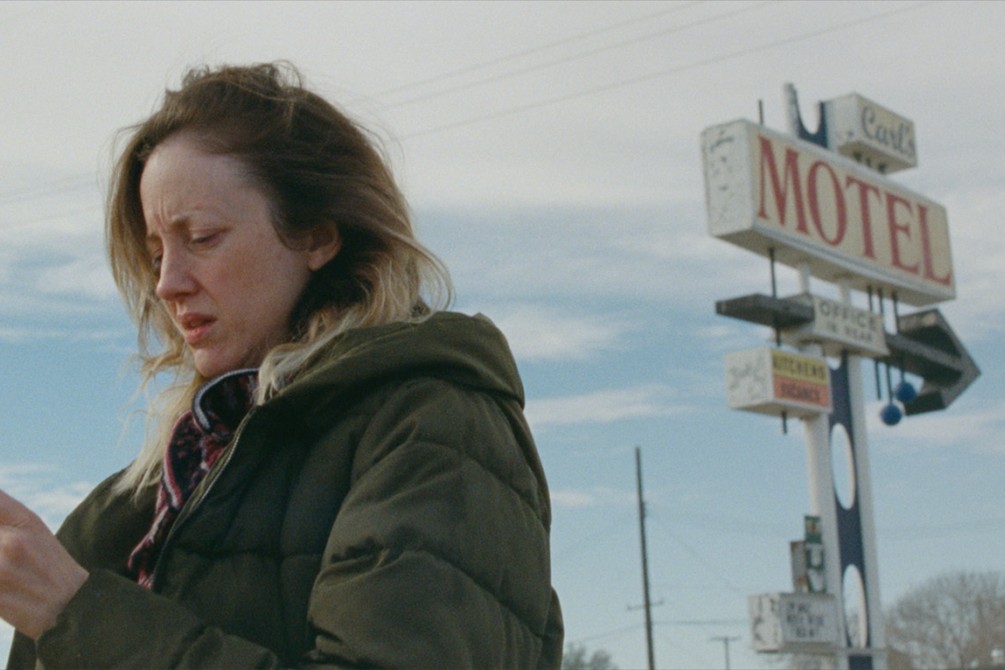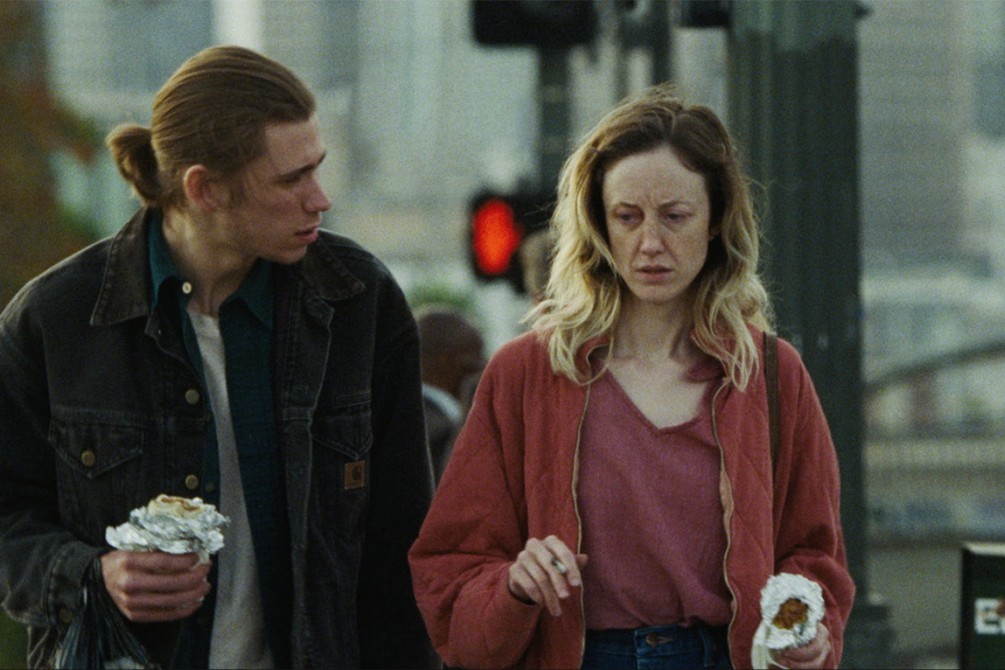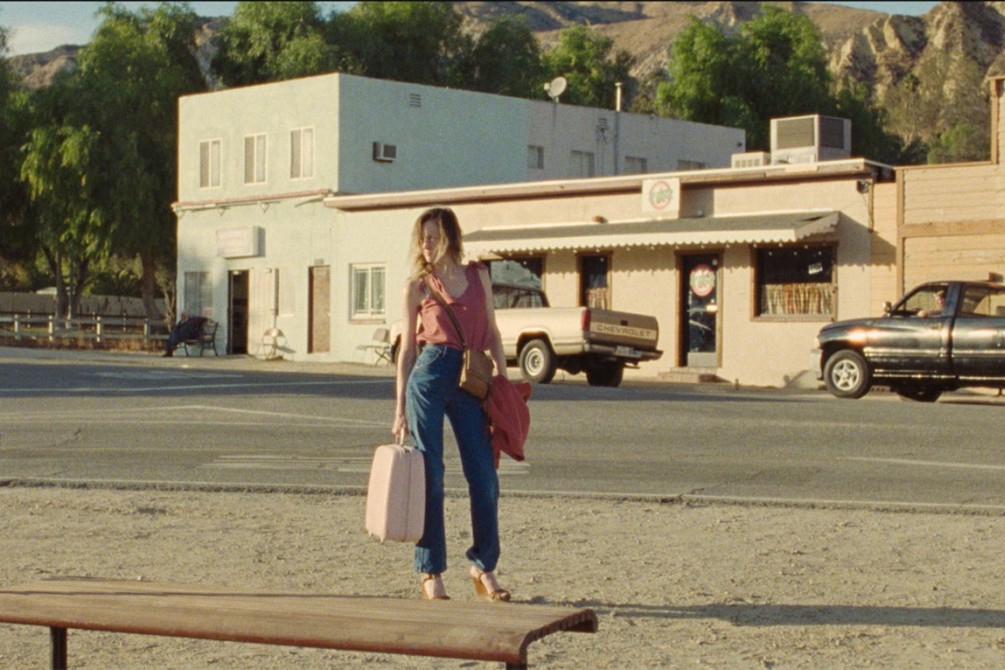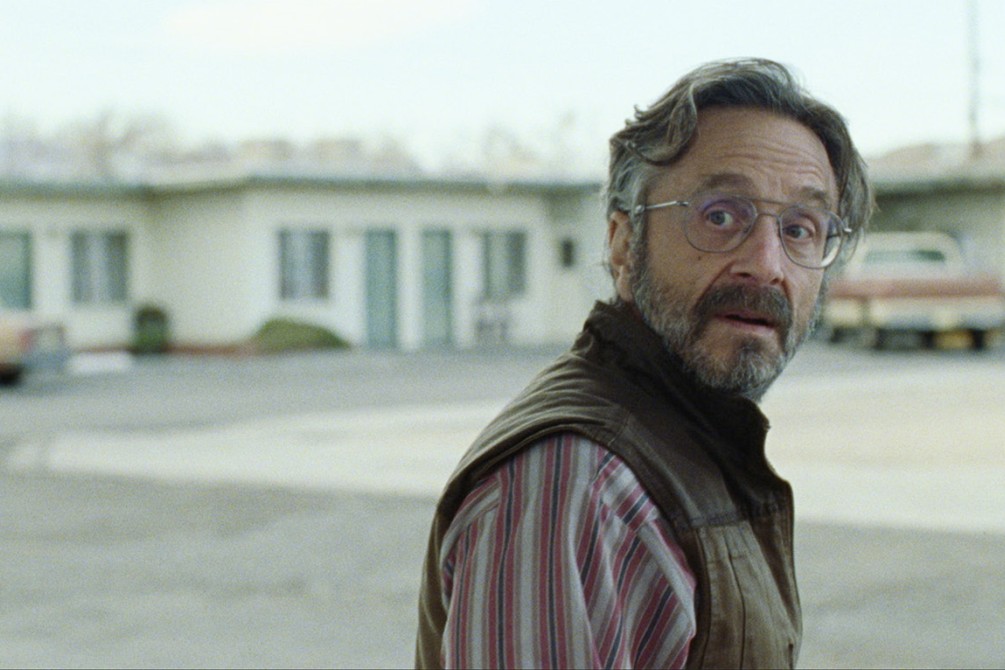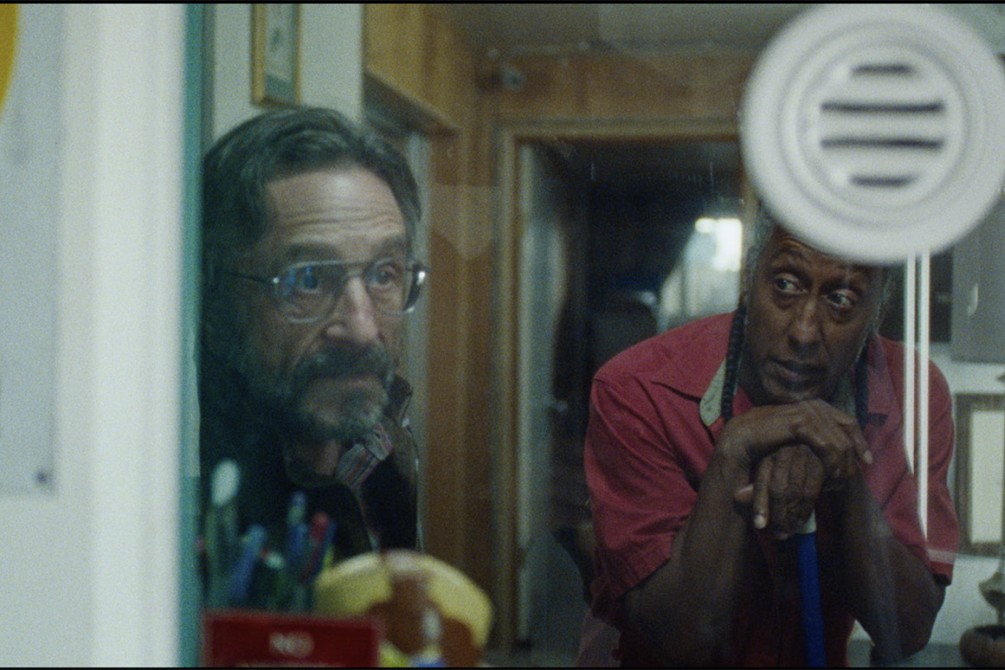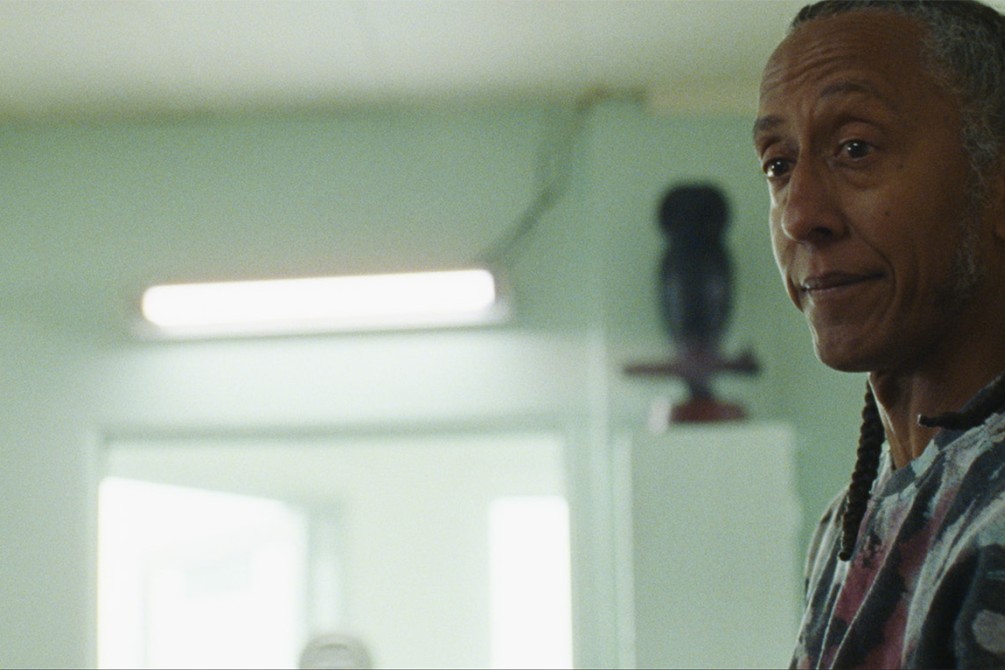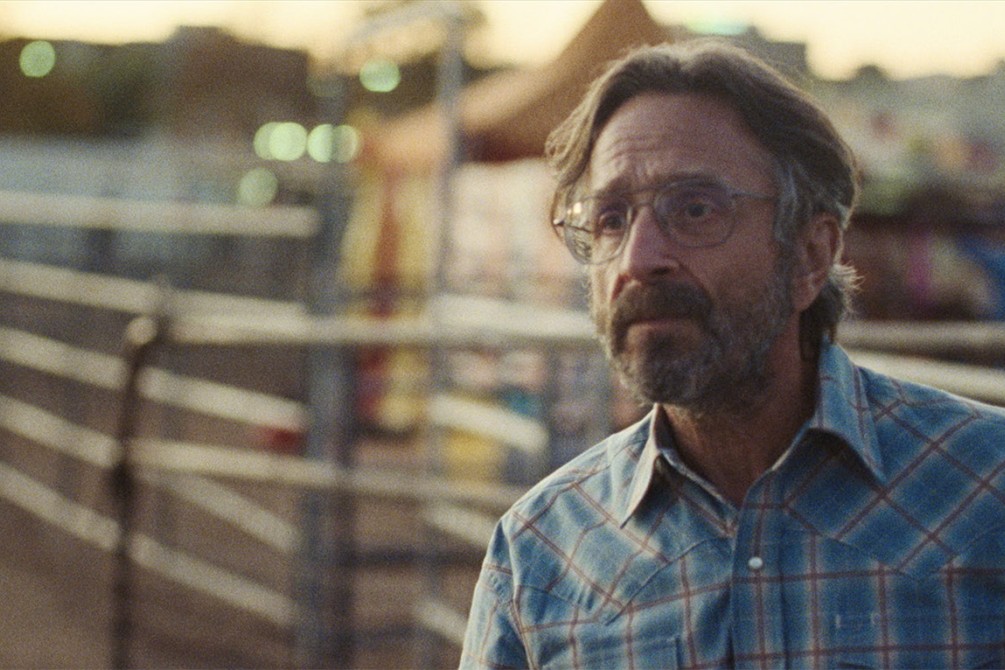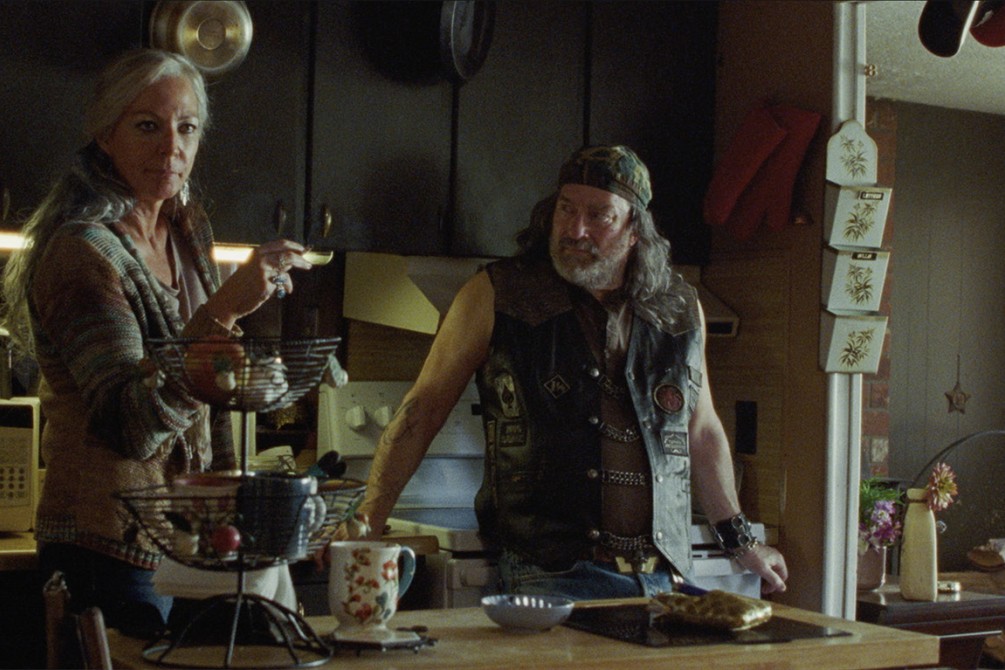
Leslie is a West Texas single mother struggling to provide for her son when she wins the lottery and a chance at a good life. But a few short years later the money is gone and Leslie is on her own, living hard and fast at the bottom of a bottle as she runs from the world of heartbreak she left behind.
With her charm running out and with nowhere to go, Leslie returns home. Unwelcome and unwanted by those she wronged, it’s Sweeney, a lonely motel clerk, who takes a chance when no one else will. With his support, Leslie comes face to face with the consequences of her actions, a life of regret, and a second chance to make a good life for her and her son.
**************************
An Exclusive Music Box Interview with TO LESLIE's Andrea Riseborough
by Steve Prokopy
Admirers of British actress Andrea Riseborough have had a lot to celebrate and look forward to in recent years. While continuing to positively dominate the world of genre and indie filmmaking, she’s also been making strides into more mainstream works. As a refresher, Riseborough began to get recognized stateside in such works as Alejandro G. Iñárritu’s BIRDMAN, Tom Ford’s NOCTURNAL ANIMALS, BATTLE OF THE SEXES, from Jonathan Dayton and Valerie Faris, and Armando Iannucci’s THE DEATH OF STALIN. But it was in 2018 when she began a string of stone-cold devastatingly cool performances, beginning with MANDY, opposite Nicolas Cage; the fantastic Branch Davidian miniseries WACO; the newest version of THE GRUDGE; and writer/director Brandon Cronenberg’s powerful horror offering POSSESSOR, which was the film that gave me my first opportunity to interview Riseborough two years ago.
In the last year or so, the chameleon-like actress showed in in six films, including PLEASE BABY PLEASE, which opens in the coming weeks (including a run at the Music Box Theatre, beginning November 4). This week alone, Riseborough can be seen in two films: writer-director David O. Russell’s historical-mystery-comedy AMSTERDAM; and the based-on-a-true-story TO LESLIE, in which she plays an alcoholic West Texas single mother, who wins the lottery and squanders the prize money on booze and partying, leaving her young son in a world of hurt. Years later, she attempts to get her life back together by taking a job at a hotel (run by Mark Maron) and rebuilding the relationship with her teenage son (Owen Teague). It’s one of the most authentic and memorable redemption stories in recent memory, and in a perfect world Riseborough would be a top contender come awards season.
In this conversation with Riseborough, we focus on TO LESLIE and her approach to playing a character spiraling out of control due to addiction, and working with first-time feature director Michael Morris (a prolific series television director, most recently helming episodes of Better Call Saul’s final season). She’s one of the most thoughtful interview subjects I’ve spoken with in more that 20 years of doing this, and she has no qualms about discussing process or specific approaches to particular characters; she sometimes even takes long, considered pauses before answering, which makes you almost lean into her answer even more intently. Please enjoy this talk with Andrea Riseborough…
Andrea Riseborough: Hi, Steve. Good to see you again.
Music Box: Good to see you. I saw TO LESLIE at SXSW, and I maintain you have given the single best acting performance of the year so far.
AR: Thank you so much.
MB: I understand that parts of this story happened to the screenwriter [Ryan Binaco]. When you are playing a real person, which you have in the past, do you prepare for that any differently than you would any other role, in terms of research or getting in the headspace?
AR: Certainly. It’s a multi-layered answer, because a real woman, as she was, and this is a version of her, was in upstate New York. That’s a personal and private place that she came from, that the seedling of this character came from, but our character is very much steeped in Texas. The history of the character is something that Michael and I developed together, and I mapped out her path in Texas very specifically, almost street to street, we mapped out her life, which was really a huge source of interest. Really fascinating.
MB: What is the key to playing someone from Texas, especially for someone not of this country, beyond the accent?
AR: Where are you from, Steve?
MB: I’m in Chicago.
AR: But where are you from?
MB: Oh, from the Washington, D.C., area.
AR: Okay, right. I think it’s an immersive experience. I think there’s only one way into it, and it’s immersive. I’d already had a great deal of time spent in my life, having worked, shot and traveled through Texas to be able to absorb many things. But as you know, it is the vastest of states—so many things going on geographically, politically. It’s an extraordinary state in many ways. As helpful as that history was, we were actually shooting this at the height of the pandemic at the end of 2020, so it was a little heartbreaking for me that I couldn’t go out during that time and spend time around where we were shooting and then come back and map everything out physically, which I like to do. I like to travel to the place, be at a person’s birthplace, where they went to school, the surrounding area. In Leslie’s case, the church that was so oppressive, etc. That wasn’t possible.
What was possible, thank god, very accessible in terms of Texas, was a huge amount of still imagery. Texas is documented in so many different ways by so many brilliant photographers. That was really insight to let me back into that world. Also, I rarely talk about the development of a character, I rarely share that, but one of the things on this one that I’m happy to share is that, which was really helpful, were local newsreels. I found those incredibly helpful, not necessarily because of the journalists, who are great generally, but because of the subjects, asking subjects on the street about things that are happening. You can get a lot of that pretty easily now, but I used to watch archival footage when we didn’t have YouTube. It’s very easy now to get very specific about a townspeople by watching their local news, when you can’t actually fly there.
MB: I’ve been excited to watch Marc Maron’s acting get better and better with each new film. Working with him, what do you learn about acting that maybe you didn’t know or perhaps you’d even forgotten, simply because he is so new to it all to a certain degree?
AR: As you can imagine, when working with someone like Allison [Janney], it feels like home, it’s deeply familiar, there’s an unspoken lexicon. We both have access to a similar thing. And it was wonderful to work with Marc because he really connected from the heart. As wonderful and valuable as I think training is for a creative type, sometimes it can be a constraint. It’s difficult to describe or articulate; it’s almost like I don’t have the language for it, in a sense, because I’m working with someone who’s coming from a different place. I was talking about this yesterday when I was doing press for the David O. Russell film, AMSTERDAM, we were all talking about how interesting it was—and this also happened in THE DEATH OF STALIN —to be a in a collective of people who all have such different perspective on the craft. You have someone like Robert De Niro and then you have Chris Rock; those are two very different approaches and both are fascinating to witness. In a sense, I was having a similar experience with Marc. He was, first and foremost, connection with his heart, with the strongest tool he has, and he has a big heart.
MB: Whenever someone plays a substance abuser, there’s usually more to it than just drinking too much or taking too much of some drug; there’s often a deep-seated pain behind it. How deep down that path do you feel like you need to go to play someone like that accurately?
AR: At the end of the day, the substance is really an unfortunate result of something internal, as you know. I knew I wanted to do it; Michael and I talked about it for a few years. There had to be a specific time to do it, and it happened to be the height of the pandemic in 2020, when things were deeply, deeply grim and we were shooting this what looked like a desolate ghost town. In that sense, it was alienating and lonely and wonderful, when taking on a character like Leslie. Psychologically, it was extraordinarily taxing.
When I’m about to play a character like this, there’s a lot of anxiety leading up to it, because I know, in spite of myself, what’s going to happen, which is I’m going to start… with Leslie for example, you can see with my external form, how gaunt I am and drawn and tired. Whatever is going on internally starts to manifest itself externally in the end. At the end of a process like that, and we had a very short shoot, like 6-8 weeks, coming out of that felt like coming out of a 20-mile swim and reaching a rock. Of course, there’s release and catharsis.
None of us can choose what life we’re born into, but after playing a character like Leslie, there’s a huge gratitude that we can reflect and think “There but for the grace of God go I,” and step back into your own, what feels like more meaty, heartening psychology, dark as it can be and step out of the victimhood that Leslie is so saturated in, having made herself the hard-done-to character of the tale. And it impacts here in every moment of her life, every choice she makes and every relationship with the people she loves. It keeps them both attracted to her and repulsed by her, because the people around her want to protect her and also want to ensure that they maintain an arm’s length distance to her because she can be such a vicious child. That’s the best way to say it. She’s also so funny, hugely fun, vivacious, she’s intoxicating.
MB: Andrea, thank you so much. Best of luck with this. Someone just sent me a link for your next film, PLEASE BABY PLEASE, so I’m going to jump into that soon.
AR: Oh, that’s fantastic. I hope you like it, because honestly, Steve, I love it. I think Amanda [Kramer, director/co-writer] is so brilliant, and I’m about to make another film with her as well.
MB: That’s great. Thank you again.
AR: Take care. See you soon.
Recommended Films
